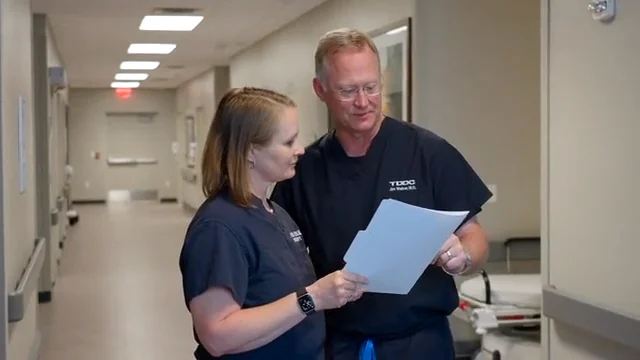Request an Appointment
March is Colon Cancer Awareness Month
Right Time. Right Test. Right Now.Colon cancer is one of the most preventable cancers with early detection. If you are 45 or older, or at increased risk, now is the right time to schedule your screening. Protect your health and connect with your preferred GI Alliance provider today.

Excellence in Patient Care and Physician Partnerships
At GI Alliance, quality patient care is at the heart of everything we do. Every physician, provider, and staff member is dedicated to ensuring a positive experience throughout the patient’s healthcare journey, supported by a commitment to both clinical and operational excellence.
As a physician-led organization, we partner with top-tier physicians and practices to enhance care and amplify their success. Recognizing the unique strengths each practice brings, we promote growth through shared values, collaboration, and genuine partnership. This approach enables physicians to focus on delivering exceptional care, provides unparalleled operational support to partner practices, and drives meaningful progress across the healthcare industry.
Our Practices
A LEGACY OF CARING
Dr. James Weber is the visionary founder and CEO of GI Alliance. He strives to ensure that GI Alliance locations provide the best GI care to patients nationwide. This is accomplished through each and every patient experience.
Comprehensive Support to Elevate Your Gastroenterology Practice
Join the nation’s leading network of gastroenterology specialists and unlock the tools and support to optimize your practice. With advanced technology, innovative treatments, and access to groundbreaking research and clinical trials, you can provide exceptional care to patients of all ages.
Our strategic partnership goes beyond clinical support. We reduce your administrative workload, enhance marketing efforts, and leverage business intelligence tools to increase patient demand and streamline operations. Together, we ensure your practice thrives while maintaining the highest standards of efficiency and effectiveness in patient care.


“GI Alliance leaves the personal side of medicine untouched. You’ll continue to have the freedom to treat patients the way you always have. We encourage our physicians to interact and share best practices, so we can all grow and continue to improve outcomes for patients.”
– James Weber, M.D.

GI Alliance leaves the personal side of medicine untouched. You’ll continue to have the freedom to treat patients the way you always have. We encourage our physicians to interact and share best practices, GI Alliance leaves the personal side of medicine untouched. You’ll continue to have the freedom to treat patients the way you always have. We encourage our physicians to interact and share best practices, GI Alliance leaves the personal side of medicine untouched. You’ll continue to have the freedom to treat patients the way you always have. We encourage our physicians to interact and share best practices, so we can all grow and continue to improve outcomes for patients.” – James Weber, M.D.

Practitioners
Centers
Centers
Annually
Affilations
Locations

JOIN GI ALLIANCE TODAY
LATEST RESOURCES




















